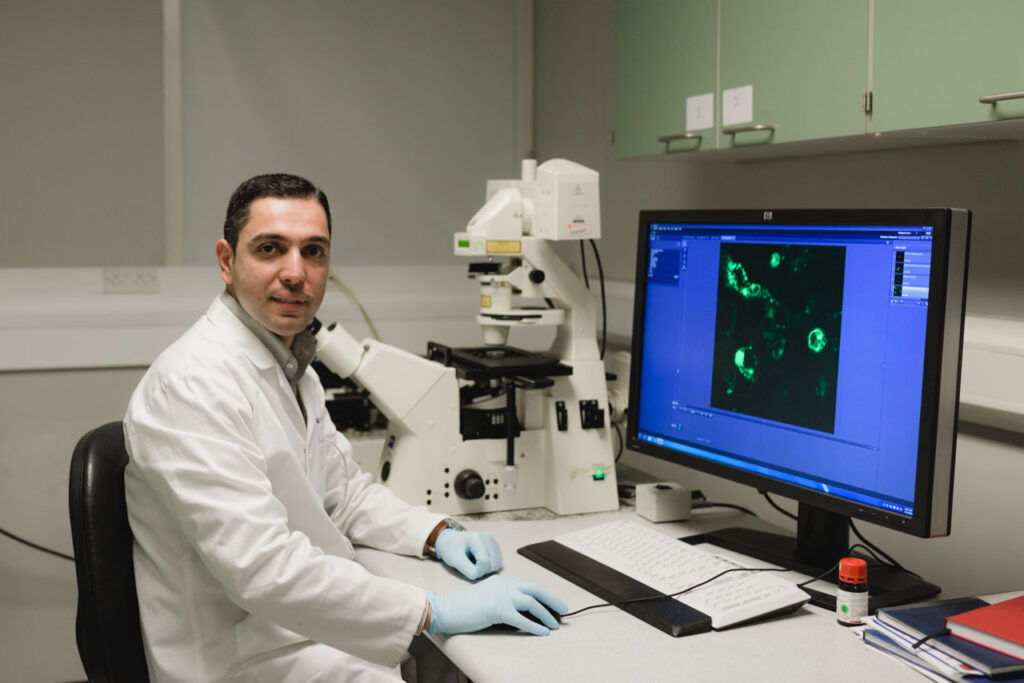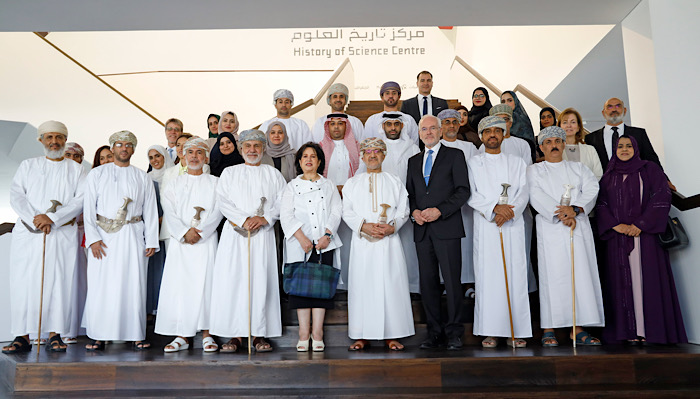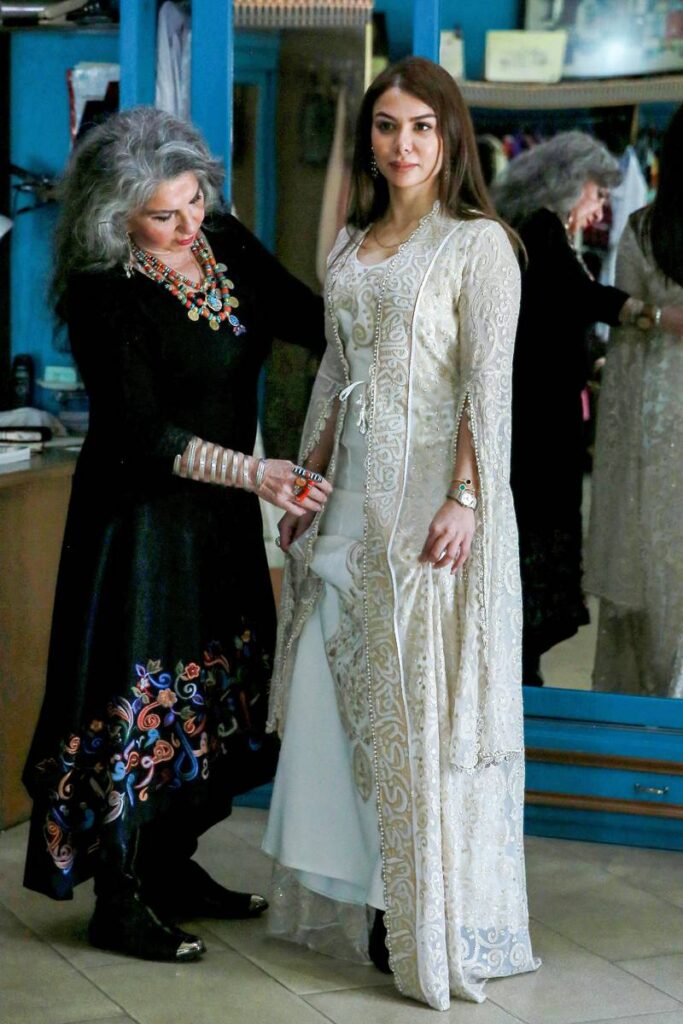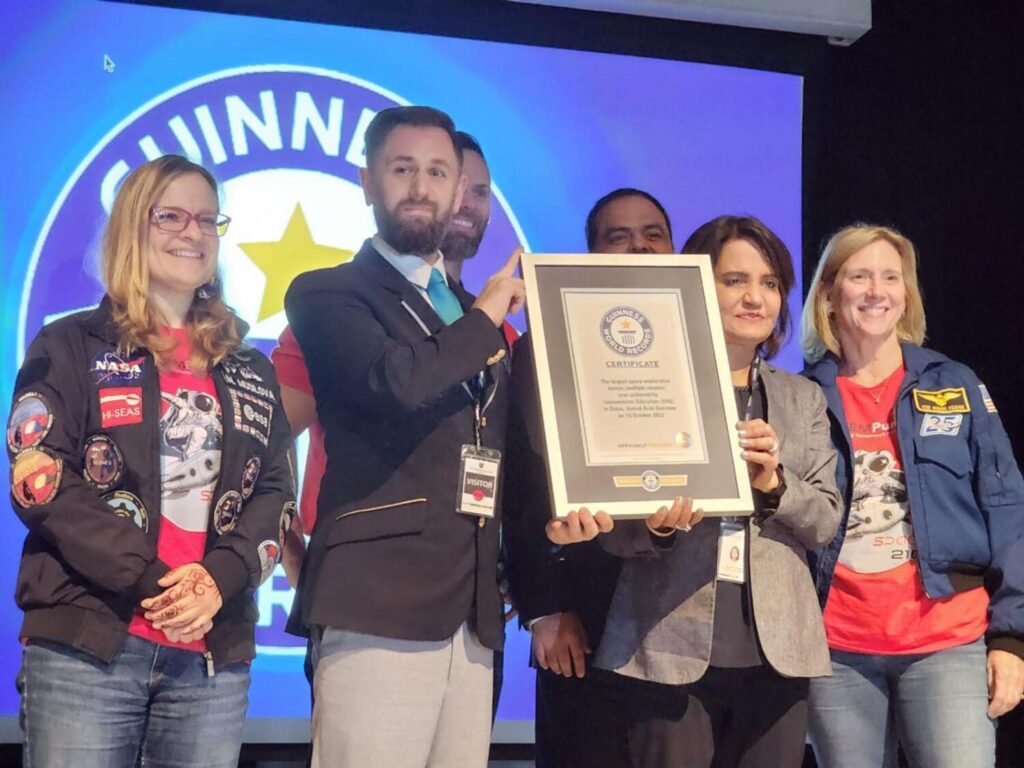Syrian girl, 7, who survived horrors of civil war crowned Arab Reading Challenge champion.
Sham Al Bakour named sixth winner of prestigious title at Dubai Opera House awards ceremony.
A Syrian schoolgirl who survived a deadly missile attack during the civil war in her country has been crowned Arab Reading Challenge champion in Dubai.
Sham Al Bakour, 7, was only six months old when her family’s car was struck during violence in Aleppo in December, 2015.
Her father was killed while she and her mother survived the horrific attack.
She has now completed a remarkable journey from tragedy to triumph to win words of praise from Sheikh Mohammed bin Rashid, Vice President and Ruler of Dubai.
In footage released by Dubai Media office, Sheikh Mohammed is seen speaking to Sham as she clutches her winner’s trophy at a ceremony at Dubai Opera House on Thursday.
Her success was met with warm applause by a large audience at the Downtown Dubai culture spot.
“She sustained injuries in the head and at the hospital doctors stitched them,” said Sham’s mother, Manal Matar, 33.
“I have been her support along with my family and her father’s family.
“I noticed she had a passion for memorising texts and Quran verses since she was less than three years old so I supported her.”
A young symbol of hope
She said that Sham has been an inspiration for the children in her family and school.
“Her cousins wait to see what she reads to learn from her.
“Her school mates will certainly be inspired. This challenge will help raise a generation that can rebuild Syria.
“Love of reading must start at a very young age.”
The young literature lover read 70 books to win a competition that attracted 22 million entrants from 44 countries.
When asked about what she would do with the Dh1 million prize money, she said she would give it to her mother.
“We haven’t thought of what to do with the money yet. The focus is on Sham, she is my investment for a better future,” Ms Mattar said.
Sham secured top spot ahead of Adam Al Qasimi from Tunisia in second, and Rashid Al Khateeb from Jordan, in third.
Reading is ‘food for soul and mind’
The young winner said reading offers an opportunity to transport yourself to new places with every turn of a page.
“I’m very happy to win and would like to invite all my friends and all young people to read. Reading is food for soul and mind,” Sham said.
“Reading takes you places, every story introduces you to different people and takes you to a new place.”
The youngster impressed judges with the confidence and clarity with which she expressed her ideas and opinions.
“It was a unanimous decision on Sham, who showed confidence,” said Lailah Al Obaidi, professor in Arabic language and literature at the University of Sharjah, and one of three judges.
“Sham will pave the way for the generation of the future because at this young age, she will be a motivation for more young readers in the Arab world.”
The annual winner is selected based on the pupil’s ability to articulate general knowledge, their critical thinking and communication skills, plus the diversity of books they have selected.
The Arab Reading Challenge was launched by Sheikh Mohammed in 2015 to encourage a million young people to read at least 50 books in a year.
Helping to shape young minds
Noor Aljbour, from Jordan, won Dh300,000, along with the title of Outstanding Supervisor, in recognition of her work guiding and motivating pupils through the challenges of the Covid-19 pandemic.
“The obstacles and the amount of work to prepare for this edition of the reading challenge were huge because its the first to happen after Covid-19,” Ms Aljbour said.
“Pupils returned to schools lacking the passion for reading, this meant that we needed to encourage pupils not only to read but to also pick up on their studies.”
Morocco’s Mukhtar Jasoulet school won the Dh1 million Best School award.
In the category for Arab pupils living in foreign countries, Nada Al Satri from Belgium was named the champion.
source/content: thenationalnews.com (headline edited)
________________
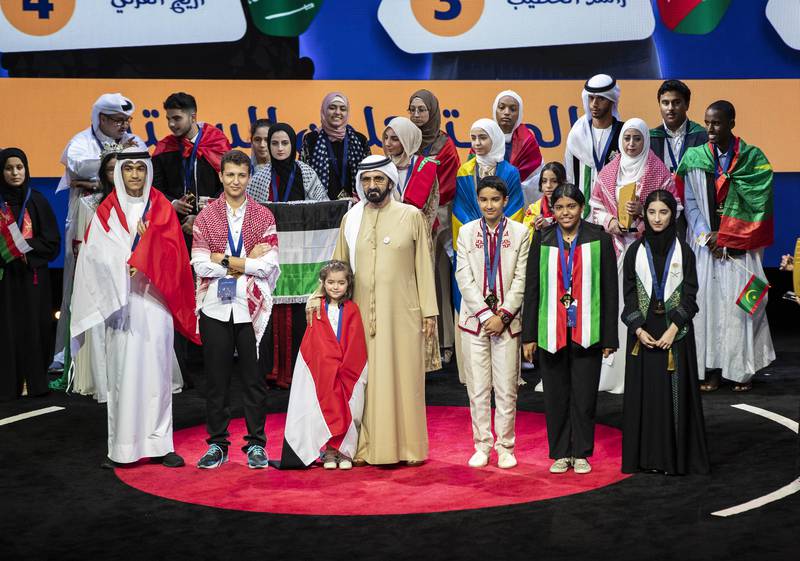
___________________________________________________
DUBAI, UNITED ARAB EMIRATES (U.A.E) / SYRIA

